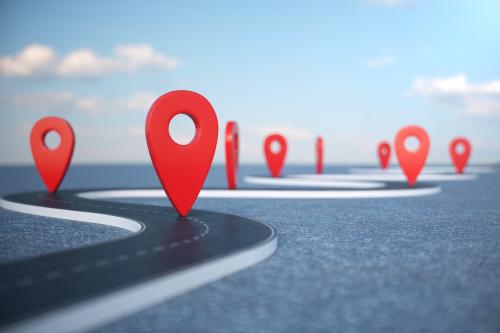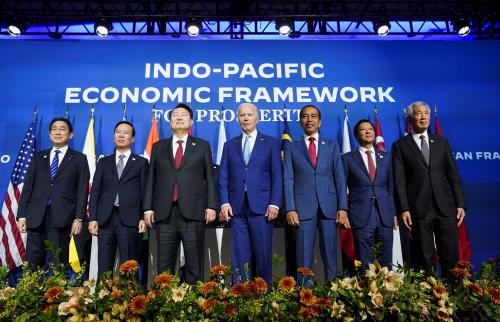“Nigeria is the most important country in Africa, bar none”. This statement was made by Johnnie Carson, the new U.S. assistant secretary of state for Africa, shortly before President Obama’s visit to Ghana on July 10-11. On July 30, however, the Financial Times reported: “Nigeria, the potential powerhouse of Africa, is in trouble”.
That editorial followed a FT article a day earlier with the evocative title, “Muddling through is no longer an option for Nigeria”.
The imminent visit to Nigeria of U.S. Secretary of State Hillary Rodham Clinton is a moment when more than a “reset button” could be pressed, to use a term Secretary Clinton applied to U.S-Russia relations. More affirmatively, Nigeria and the United States could initiate a new era of cooperation based on shared commitments to constitutional democracy, the strengthening of open, multi-ethnic and multi-religious societies, and laying the foundations for sustainable and equitable growth.
Secretary Clinton can be expected to reflect the commitments already made by President Obama to be respectful towards other countries and cultures, to speak frankly about the principles and interests that guide U.S. policies, and to provide strong support to governments that serve rather than “steal from” their people. It is in America’s interests to help Nigeria overcome the problems that have made it the “crippled giant” of Africa, to cite the title of a book by Professor Eghosa Osaghae.
At the top of the list is the deplorable state of Nigeria’s electoral system. In his Accra address, Barack Obama referred dismissively to countries that call themselves democracies but settle for “a sprinkling” of elections. Ghana made a break from this debilitating syndrome and now has a first-rate electoral system led by Professor K. Afari-Gyan, surely one of Africa’s contemporary heroes.
An historic opportunity lies before President Umaru Yar’Adua to remove a major stumbling block to democratic governance in Nigeria.
Instead of pruning the Uwais Committee on Election Reform report of provisions that would endow Nigeria with a truly independent electoral system, his government should seize this opportunity to guarantee Nigerians that all elections at federal, state and local levels will henceforth be free of fraud, violence and intimidation. And the nomination procedures of political parties must be transformed from the current bazaars in which the essential competition takes place over godfathers and cash rather than the freely expressed preferences of their members.
No real elections, no democracy. Once Nigeria commits to implement this fundamental principle, the path would be clear to construct a Nigerian-American Partnership for Growth. The proposed partnership would involve government, business, and civic actors and institutions in both countries. It could be financed by both sides as there are ample resources available to address the core Nigerian challenges and opportunities.
These include the provision of reliable and affordable electric power; the development of alternative energy sources; the rapid expansion of food and other agricultural products; the improvement of petroleum and gas production and distribution; a comprehensive peace process in the Delta; innovative approaches to reducing corruption and money-laundering; inland and maritime security enhancement; strengthening health and education systems; urgent employment and training facilities for youths; improved performance of legislatures and the judiciary at all levels; and the upgrading of basic infrastructures, especially roads, railroads, and refineries.
What is particularly exciting about this era in the United States is that the Obama-Biden government is calling on talented persons in business, the academy, and the professions to identify and promote creative ways to improve the financial system, health care, energy security, and environmental protection.
Intellectual and financial resources abound to help Nigeria leapfrog from laggard to leader in all the areas mentioned above. It has already done so astoundingly in the area of telecommunications.
For over thirty years, I have witnessed a capable, ethical, and enterprising Nigeria being smothered by scammers. Obama stated in Accra that America is ready to partner with Africans who take the lead in dismantling discredited systems of governance and establishing a broader base for prosperity. Such a partnership is ready for the making when Hillary Clinton steps off her plane in Abuja. Which Nigeria will greet her?



Commentary
Op-edA Nigerian-American Partnership Beckons
August 7, 2009